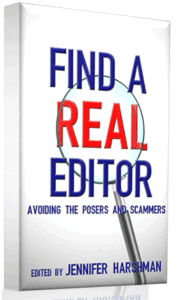Copyright protected is the default status of any piece of creative work such as books, songs, and poems. There is so much confusion about copyright law that I want to write a book on it and give it away. Since I don’t have time to write all the books, I’ll just start with this blog post.
As a member of many writers’ groups and as a writing coach, I hear this one all the time. “I’m afraid to share my work, because it’s not copyrighted and someone might steal it.” Before we get into this, the correct phrasing is not “copyrighted.” It is “copyright protected.” Let’s address both issues there: the misunderstanding of what is copyright protected, and the theft of intellectual property.
First, the thieving bit. Sooner or later, if you publish anything, if you’re any good (and maybe even if you’re not), someone is going to steal your writing. It’s just part of life. Writers don’t ask each other if anyone has ever stolen their work; they ask each other when last time was, and who the warty toad is.
Someone will steal your writing. Don’t let that stop you from publishing your work, and don’t let it stop you from sharing it with people who can help you improve.
Editors don’t steal your writing
Some writers who have approached me about becoming their editor were terrified that I’d steal their stories. I’m not joking. And just to clear this up, too: editors don’t steal your writing. It would be career suicide, and editors don’t earn enough to pay lawyers to defend them in lawsuits. It’s absolutely not worth it.
Yes, there are instances of manuscripts being rejected and the same plot being published in another book. That’s a phenomenon whereby several people get the same idea at the same time. It happens often (and not just with writing), and as much as it feels like it, it’s not someone stealing your idea. They just got there first, or the person judging the pieces thought for some reason that someone else’s rendition of it was better than yours. Remember, there’s no accounting for taste, and it’s just one person’s opinion.
The fear that one’s writing will be stolen by an editor is understandable, but 95% of the people who approach me get past it and trust me. When a writer is too afraid that I’m going to steal their work, that’s the end of the conversation. I can’t help someone if they won’t show me their work. No one can. This is a fear that you can lay to rest now. Your work is safe with a real editor. Not sure if the person is a real editor? Download a free copy of my book Find a Real Editor, and find out.

Copyright protected
Now to the simple, clear-cut definition of “copyright protected.” Note that it’s not the full, complicated, and legalese-filled definition that sometimes gets hashed out in court. I’ll leave that to intellectual property rights lawyers like my friend and client Steve Sponseller. Copyright protected means the work is protected under copyright law.
The simple statement is this: Any work (book, song, infographic, map, etc.) is copyright protected. It is protected from the moment you create it. If you made it, you own it. You own the copyright, unless you sell or license it. If someone steals it or uses it without your permission, you have the right to do something about it. That’s when those lawyers come into play.
People need to get this through their heads and stop thinking they don’t own the copyright to their own work. It is copyright protected. If you wrote it, it’s under copyright protection. For an easy way to prove that you own the copyright, simply register the copyright with the government. To defend your copyright in court, your copyright regarding that piece must be registered with the US Copyright Office (part of the Library of Congress).
Don’t rely on “poor man’s copyright” because it does not hold up in court. The fee changes periodically (always moving upward, of course), but it’s not too expensive. For most authors, the copyright registration fee is currently $65.